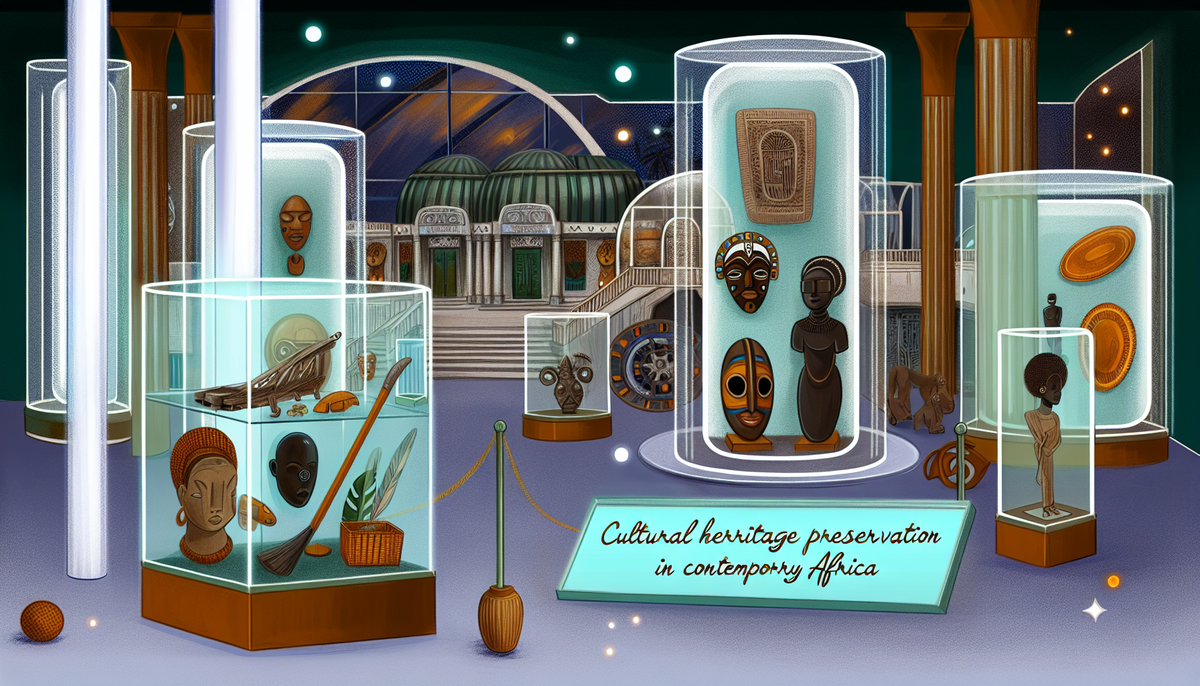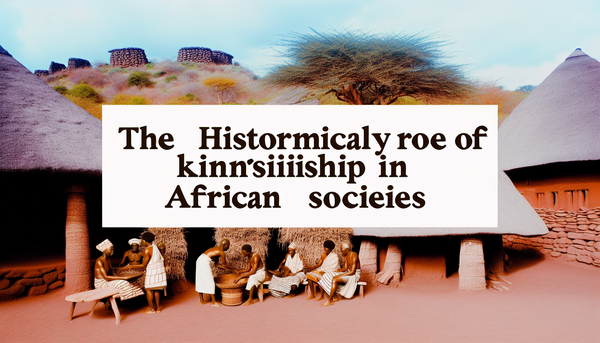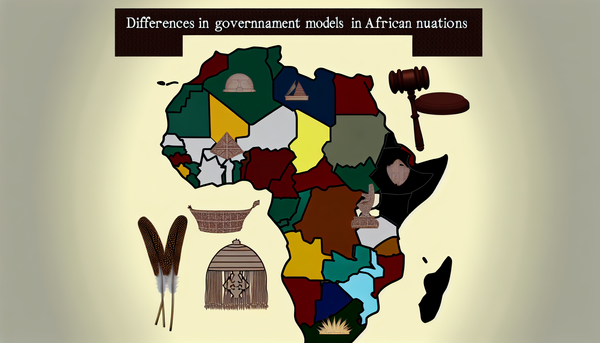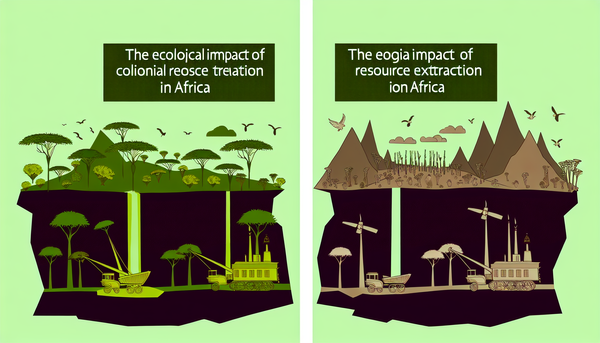Cultural Heritage Preservation in Contemporary Africa

Understanding the Scope of Cultural Heritage in Africa
Cultural heritage in Africa encompasses a vast and diverse array of traditions, languages, and art forms that reflect the continent's rich history and identity. It includes tangible elements such as monuments, artifacts, and archaeological sites, alongside intangible aspects like oral traditions, music, dance, and rituals. Each region boasts its unique cultural expressions, shaped by centuries of interaction among indigenous communities, colonial influences, and globalization.
The continent is home to 54 countries, each with distinct ethnic groups, languages, and historical narratives. For instance, the vibrant Maasai culture of East Africa showcases traditional craftsmanship and pastoral practices, while the ancient pyramids of Egypt testify to the ingenuity of early civilizations. Additionally, Africa's linguistic diversity, with over 2,000 languages spoken, is a fundamental part of its cultural heritage.
Despite the immense value of these cultural assets, they face numerous threats, including urbanization, climate change, and socio-political unrest. Understanding the scope of African cultural heritage not only highlights its significance but also underscores the urgent need for effective preservation measures. By recognizing and valuing this heritage, we lay the groundwork for fostering a sense of identity and continuity for future generations.
Challenges Facing Preservation Efforts
Preserving cultural heritage in Africa presents a myriad of challenges that are often complex and interlinked. One significant obstacle is the rapid pace of urbanization, which frequently leads to the degradation or disappearance of historical sites. As cities expand to accommodate growing populations, traditional neighborhoods and landmarks are often sacrificed for modern development projects.
Additionally, economic constraints hinder preservation initiatives. Many African nations face limited resources and funding, making it difficult to implement robust conservation programs. This scarcity often results in inadequate maintenance of cultural sites and reduced support for traditional practices.
Moreover, political instability and conflict can devastate cultural heritage. Armed conflicts have led to the destruction of priceless artifacts and historical sites, erasing invaluable parts of history. In some cases, the looting of museums and heritage sites has significantly impoverished cultural landscapes.
Another critical concern is the influence of globalization, which can overshadow local traditions and practices. The influx of foreign cultures, through media and commerce, often leads to cultural homogenization, threatening the survival of unique cultural identities.
Addressing these challenges necessitates a multifaceted approach involving local communities, governments, and international organizations to ensure that Africa's rich cultural heritage is preserved for future generations.
Innovative Methods for Safeguarding Traditions
As the threats to cultural heritage in Africa become increasingly pronounced, innovative methods for safeguarding traditions are emerging. One promising approach is the integration of technology into preservation efforts. Digital archiving, for instance, allows communities to document and share their cultural practices, languages, and artifacts online, ensuring that even if physical sites are lost, the knowledge remains accessible.
Community-driven initiatives are also gaining traction, as local groups recognize the importance of maintaining their cultural identity. Workshops and training programs are being implemented to teach younger generations about traditional crafts, music, and dance. This not only empowers the community but creates a sense of pride in their heritage.
Additionally, the use of social media platforms provides an effective way to raise awareness and promote cultural events. Local artisans and performers can showcase their work to a global audience, fostering appreciation and support for traditional practices.
Collaborative partnerships with universities and research institutions further enhance preservation strategies. These collaborations often lead to innovative research projects that focus on sustainable practices while reviving endangered cultural traditions.
Ultimately, by leveraging technology, fostering community involvement, and promoting academic partnerships, Africa can forge new pathways to safeguard its diverse cultural heritage for future generations.
Role of Local Communities in Heritage Conservation
Local communities play a pivotal role in the conservation of cultural heritage across Africa, serving as custodians of traditions and practices that have been passed down through generations. Their intimate connection to the land and its history provides them with unique insights and a vested interest in preserving their cultural identities. Communities often act as the first line of defense against threats to heritage, fostering grassroots initiatives that celebrate and protect local customs.
Engagement at the community level is essential for effective heritage conservation. By involving locals in decision-making processes, stakeholders can ensure that preservation methods align with the community's values and needs. This participatory approach not only empowers residents but also enhances the sustainability of heritage programs, as locals are more likely to engage in activities that reflect their cultural significance.
Furthermore, local communities are vital in passing down knowledge and skills related to traditional practices, such as craftsmanship, storytelling, and agricultural methods. Intergenerational programs that promote the sharing of these skills can revitalize interest in cultural heritage among younger members.
Ultimately, the active involvement of local communities in heritage conservation not only protects cultural diversity but also fosters a sense of pride and belonging, enriching both local and global cultural landscapes.
Impact of Technology on Cultural Preservation
Technology is revolutionizing the way cultural heritage is preserved and promoted in Africa. Through digital tools and platforms, communities are able to document and share their cultural practices, languages, and artworks with a broader audience. For instance, digital archiving allows for the creation of extensive databases that store information about artifacts, traditional stories, and even endangered languages. This ensures that precious knowledge is not lost to time but remains accessible for future generations.
Moreover, technologies such as 3D scanning and virtual reality enable the recreation of historical sites, providing immersive experiences that can educate individuals about cultural heritage. Virtual tours allow people to explore significant but physically inaccessible locations, fostering appreciation and awareness of these cultural treasures.
Social media platforms serve as powerful tools for cultural dissemination, allowing local artists and craftsmen to showcase their work to a global audience. This visibility can stimulate interest and support for traditional practices, encouraging their continued relevance in contemporary society.
Furthermore, mobile applications are being developed to facilitate community engagement in heritage conservation efforts. By leveraging technology, individuals can report threats to cultural sites, participate in initiatives, and collaborate with preservation organizations. Ultimately, the intersection of technology and cultural preservation enhances resilience, ensuring that Africa's diverse heritage endures amidst the challenges of modernity.
Legal Frameworks and Policy Support
The preservation of cultural heritage in Africa is significantly influenced by legal frameworks and policy support at national and international levels. Various countries on the continent have established laws aimed at safeguarding cultural sites, artifacts, and practices. These laws often seek to regulate the removal of artifacts, protect archaeological sites, and ensure that heritage conservation initiatives are enforced.
International conventions, such as UNESCO's World Heritage Convention, play a pivotal role in shaping national policies. They encourage states to adopt measures that protect cultural heritage and facilitate cooperation between nations. African countries frequently leverage these frameworks to access technical and financial support for conservation projects. For example, the African Union's Agenda 2063 emphasizes the importance of culture in achieving socio-economic growth, fostering an environment where heritage conservation is prioritized in national development plans.
Moreover, the involvement of local communities in policy-making processes is crucial for effective heritage preservation. Policies that reflect the voices and needs of communities are more likely to gain support and be successfully implemented. Training programs and capacity-building initiatives can enhance local stakeholders' understanding of legal protections and empower them to advocate for their cultural heritage.
Ultimately, robust legal frameworks and effective policy support are foundational for ensuring the sustainable preservation of Africa's diverse cultural heritage.
Global Partnerships and International Collaboration
Global partnerships and international collaboration are essential for the successful preservation of cultural heritage in Africa. Engaging with international organizations, governments, and NGOs facilitates access to expertise, funding, and technologies that can enhance local preservation efforts. Collaborative projects can be instrumental in addressing challenges faced by communities and heritage sites, fostering a shared commitment to cultural sustainability.
By participating in global networks, African nations can share best practices and learn from successful heritage conservation initiatives worldwide. For example, partnerships with institutions like UNESCO, the World Monuments Fund, and various cultural organizations provide valuable resources, training, and technical assistance. These collaborations often lead to innovative solutions tailored to the needs of specific communities, promoting sustainable practices.
Moreover, international awareness campaigns and events help highlight the significance of Africa's rich cultural heritage, attracting global attention and support. Such visibility can stimulate tourism, investment, and research opportunities, contributing to local economies and encouraging preservation efforts.
Additionally, exchanges between cultural practitioners, researchers, and policymakers foster dialogue and mutual understanding, strengthening the global commitment to safeguarding cultural diversity. Ultimately, global partnerships and collaborative efforts empower local communities, ensuring that Africa's heritage is preserved and celebrated in a rapidly changing world.



